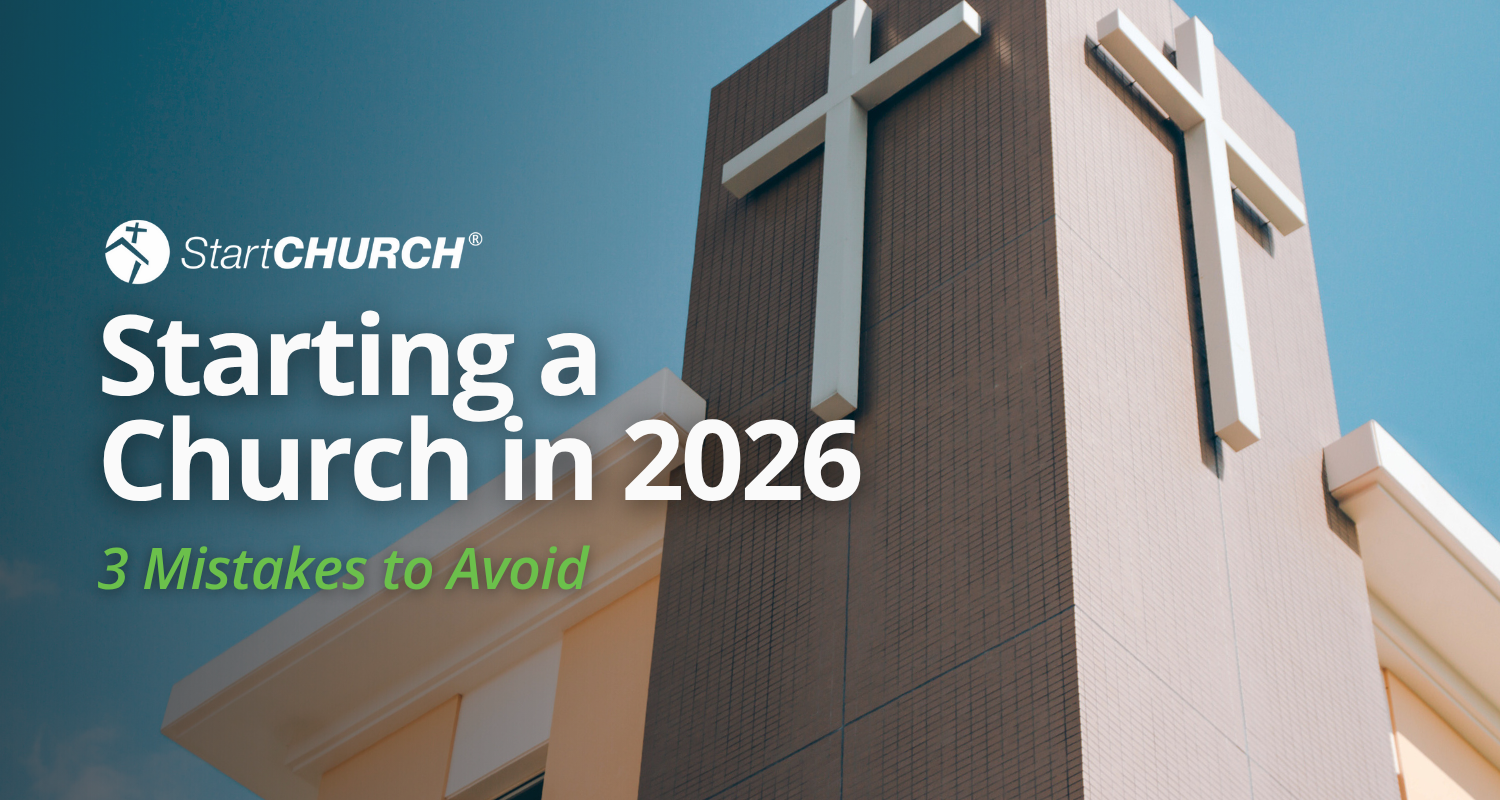Starting a Church in 2026: 3 Mistakes to Avoid
By Brandon Williams, VP of Marketing

If you are preparing to start a church in 2026, you may be feeling both excitement and nerves. That is completely normal. Planting a church is a calling that blends spiritual leadership with practical responsibilities. While most pastors feel confident about preaching, discipleship, and outreach, many are less prepared for the legal and administrative steps needed to launch and sustain a church.
One of the biggest mistakes new church planters make is trying to handle everything alone. The truth is, building a strong church requires both community support and expert guidance.
To help you start on the right foundation, let’s look at three common mistakes pastors make when launching a church—and how you can avoid them.
Mistake #1: Opening a Church Bank Account Under Your Personal Social Security Number
Why is this a problem?
When a church opens a bank account under a pastor’s personal Social Security number instead of the church’s tax ID number (EIN), the IRS views it as a personal account. That means the pastor could be personally liable if the IRS audits or places liens on assets.
What should you do instead?
-
Incorporate* your church with your state.
-
Apply for a federal tax ID number (EIN).
-
Open a bank account in the church’s name using the EIN.
This protects both the pastor and the church, ensuring funds are legally separate from personal finances.
Mistake #2: Misclassifying Pastors for Tax Purposes
What often goes wrong?
Some churches issue their pastors a Form 1099-MISC as if they were independent contractors. This is incorrect and can lead to IRS penalties. Pastors are considered employees for federal income tax purposes, and they should be issued a Form W-2.
How should it be reported?
-
Salary should be listed in Box 1 of the W-2.
-
Housing allowance should be designated and reflected in Box 14.
This not only keeps your church compliant but also ensures pastors can properly document their income when applying for mortgages, loans, or other financial matters.
Mistake #3: Failing to Properly Establish a Housing Allowance
Why does this matter?
The housing allowance is one of the best tax benefits available to pastors, but it must be set up correctly. Many pastors mistakenly believe it is simply a cash benefit. In reality, it is a tax exclusion that must be:
-
Approved in advance by the church board
-
Documented in official board meeting minutes
-
Calculated annually by the pastor based on actual housing expenses, the designated amount, and fair rental value
Without proper approval and documentation, a housing allowance has no value if questioned by the IRS.
(Recommended Resource: Pastor Housing Allowance: What It Is and How to Use It Correctly)
Lessons for Today’s Church Planters
Launching a church is about more than preaching powerful sermons and building a congregation. It also requires creating a solid legal and financial foundation. Small mistakes—like opening the wrong type of bank account or mishandling housing allowance paperwork—can lead to significant IRS penalties and financial strain.
The good news is, you do not have to figure it out alone. With the right guidance, you can avoid these pitfalls and focus on leading the church God has called you to plant.
How StartCHURCH Helps New Churches Start Strong
At StartCHURCH, we help pastors establish the legal and financial foundation their churches need to thrive. Whether you need to incorporate*, secure 501(c)(3) tax-exempt status, or set up proper compensation agreements and housing allowance policies, our team is here to guide you.
Call us today at 770-638-3444 to learn how we can help you start your church with confidence in 2026.
%schedule-a-call-cta%
*StartCHURCH provides clerical assistance to help you process your own articles of incorporation and prepare your own bylaws. StartCHURCH does not provide legal advice.

